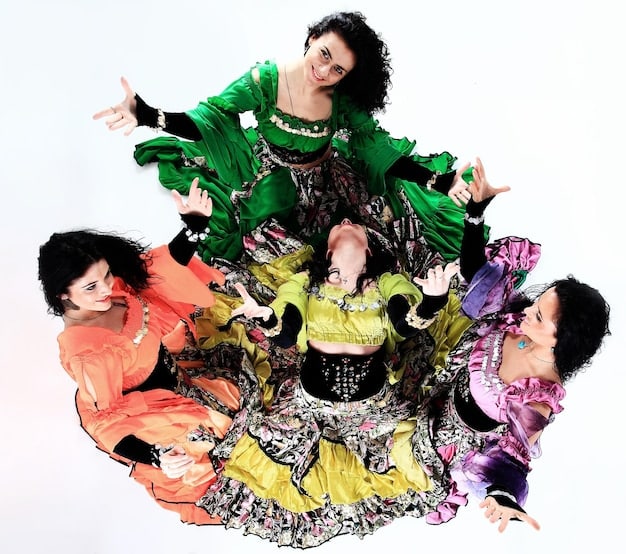How Has the Definition of Culture Evolved? A Deep Dive

Anúncios
How has the definition of culture evolved? The definition of culture has evolved from a focus on cultivation and refinement to a broader understanding encompassing shared values, practices, and beliefs within a group, shaped by historical, social, and environmental factors.
How has the definition of culture changed over time? Well, once upon a time, culture was all about high art and refined tastes. But those days are long gone! Today, culture is so much more: think shared values, everyday practices, and the unique ways different groups see the world. Let’s jump in and see how ideas about culture have grown and twisted over the centuries!
Anúncios
The Early Definitions of Culture: Cultivation and Refinement
Initially, the notion of culture was closely linked to cultivation—literally, tilling the soil, and metaphorically, refining the mind. This section explores how early thinkers viewed culture as a process of intellectual and aesthetic development, limited to a privileged few.
Culture as Intellectual Growth
In early definitions, culture was seen as the process of cultivating one’s intellect and artistic sensibilities. It was something acquired through education and exposure to the arts.
Anúncios
The Elite Domain
This early view often restricted culture to the elite classes, who had the resources and time to engage in artistic and intellectual pursuits. This created a divide, with ‘cultured’ individuals set apart from the ‘uncultured’ masses.
- Focus on High Art: Culture was largely defined by appreciation of classical music, fine art, and literature.
- Exclusionary Nature: This definition inherently excluded those without access to education and resources.
- Eurocentric Bias: The standards for culture were often based on European traditions and values.
- Emphasis on Refinement: Culture was about improving oneself through the acquisition of knowledge and taste.

These early definitions set the stage for later, broader interpretations of culture. While the idea of personal and intellectual growth remains relevant, the concept of culture has expanded to encompass many more aspects of human social life.
The Rise of Anthropology and a Broader View of Culture
As anthropology emerged as a discipline, it brought with it a radical shift in how culture was understood. This section highlights the contributions of key anthropologists and the move towards a more inclusive definition.
Franz Boas and Cultural Relativism
Franz Boas, a pioneer of anthropology, advocated for cultural relativism—the idea that cultures should be understood on their own terms, not judged by the standards of another culture.
Bronisław Malinowski and Participant Observation
Bronisław Malinowski emphasized the importance of participant observation: living within a culture to understand it from the inside. This method provided deep insights into the everyday lives of people in different societies.
- Holistic Approach: Anthropologists began to study all aspects of a society, including religion, economics, and social structure.
- Emphasis on Diversity: Anthropology highlighted the diversity of human cultures and the unique adaptations of different groups.
- Rejection of Ethnocentrism: Anthropologists challenged the idea that any one culture was superior to others.
- Focus on Lived Experience: Culture was understood as something that was lived and practiced, not just a set of abstract ideas.
These developments in anthropology significantly broadened the definition of culture, moving it away from a focus on refinement and towards a more inclusive and descriptive understanding of human societies.
Culture as Shared Meaning: Clifford Geertz and Symbolic Anthropology
Clifford Geertz, a highly influential anthropologist, further transformed the understanding of culture by emphasizing shared meanings and symbols. This section delves into Geertz’s interpretive approach and its focus on cultural symbols.
Culture as a System of Symbols
Geertz argued that culture is a system of shared symbols and meanings. It is through these symbols that people make sense of the world and communicate with each other.
Thick Description
Geertz advocated for ‘thick description,’ which involves not just describing behavior but also interpreting the meanings and symbols behind it. This approach allowed anthropologists to analyze cultural practices in depth.
- Emphasis on Interpretation: Culture is understood as something that needs to be interpreted, not just observed.
- Focus on Meaning: The study of culture involves understanding the meanings people attribute to their actions and beliefs.
- Symbolic Analysis: Cultural symbols, such as rituals and myths, become central to understanding cultural practices.
- Subjective Understanding: Geertz acknowledged that the understanding of culture is always subjective and influenced by the observer’s perspective.
Geertz’s work highlighted the importance of understanding culture as a system of shared meanings and symbols. This approach has had a lasting impact on the study of culture in anthropology and other disciplines.
Popular Culture and the Democratization of Culture
The rise of popular culture has played a significant role in democratizing the definition of culture. This section examines how mass media, entertainment, and consumerism have broadened and diversified what counts as culture.
Mass Media and Cultural Production
Mass media, including television, film, and the internet, have become major producers and distributors of culture. These media shape our values, beliefs, and behaviors.
Consumer Culture
Consumer culture has also transformed the definition of culture. The products we buy, the brands we identify with, and the ways we consume goods have become important aspects of cultural identity.

- Accessibility: Popular culture is accessible to a wide audience, transcending social and economic barriers.
- Commercial Influence: Popular culture is often driven by commercial interests, which can shape its content and values.
- Global Reach: Popular culture has a global reach, spreading ideas and trends across borders.
- Dynamic and Evolving: Popular culture is constantly changing, reflecting shifts in societal values and tastes.
The rise of popular culture has democratized the definition of culture, making it more inclusive and accessible. However, it has also raised questions about the impact of commercialism and globalization on cultural diversity.
The Interplay of Culture and Identity
Culture plays a crucial role in shaping individual and collective identity. This section explores how culture provides a sense of belonging, shapes self-perception, and influences social interactions.
Cultural Identity
Cultural identity refers to the sense of belonging to a particular cultural group. It is shaped by shared values, beliefs, and practices.
Culture and Self-Perception
Culture influences how we see ourselves and others. It shapes our values, attitudes, and behaviors, and it provides a framework for understanding the world.
- Socialization: Culture is transmitted through socialization, the process by which individuals learn the norms and values of their society.
- Belonging and Inclusion: Culture provides a sense of belonging and inclusion, connecting individuals to a larger community.
- Expression and Creativity: Culture provides a medium for expressing individual and collective creativity.
- Dynamic Interaction: The interaction between culture and identity is fluid and dynamic, shaped by individual experiences and social changes.
The interplay of culture and identity is a complex and multifaceted process. Culture provides the building blocks for constructing identity, but individuals also shape and reshape culture through their actions and interactions.
Challenges to Traditional Definitions and the Future of Culture
The concept of culture continues to evolve in response to globalization, technological advancements, and social changes. This section discusses some of the challenges to traditional definitions and considers the future of culture.
Globalization and Cultural Hybridity
Globalization has led to increased cultural exchange and hybridity. As cultures interact and blend, traditional definitions become less relevant.
Technology and Digital Culture
Technology has created new forms of culture, such as digital culture and online communities. These developments challenge traditional notions of place and community.
- Fluid Boundaries: Cultural boundaries are becoming more fluid and permeable, as people move between different cultural contexts.
- Digital Communities: Online communities are creating new forms of culture, based on shared interests and identities.
- Cultural Appropriation: The increased interaction between cultures has also raised concerns about cultural appropriation and the need for cultural sensitivity.
- Continuous Evolution: Culture will continue to evolve, shaped by ongoing social, technological, and environmental changes.
These challenges indicate that the definition of culture also needs to be continuously updated. As culture becomes more globalized and digitized, it’s crucial for researchers to be adaptive and receptive to all different cultures in order to come to a mutual understand.
| Key Concept | Brief Description |
|---|---|
| 🏛️ Early Definition | Culture as intellectual and aesthetic refinement among elites. |
| 🌍 Anthropology View | Culture as shared values and practices within a group. |
| 📺 Popular Culture | Influence of mass media and consumerism on culture. |
| 🌐 Globalization Effects | Cultural exchange, hybridity, and digital communities redefine culture. |
What is the early definition of “culture?”
▼
The term “culture” initially related to the cultivation of human intellect and refinement of taste among the elite or upper classes of society.
What is cultural relativism?
▼
Cultural relativism is the principle of understanding and evaluating cultures based on their own terms rather than judging against the standards of another.
What is a symbolic analysis?
▼
Symbolic analysis is the study of cultural symbols, like rituals and myths, to interpret the meanings they hold within a culture.
How has consumerism affected the culture?
▼





